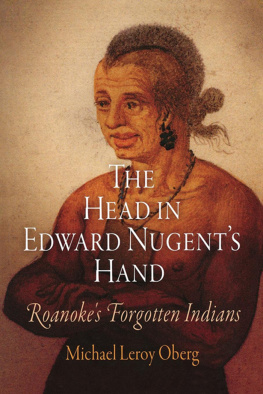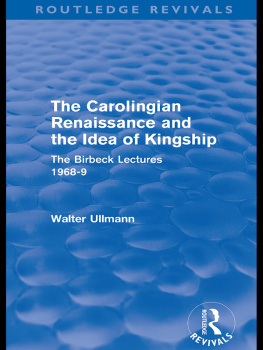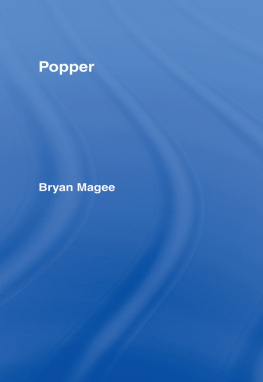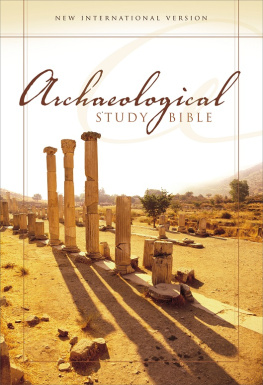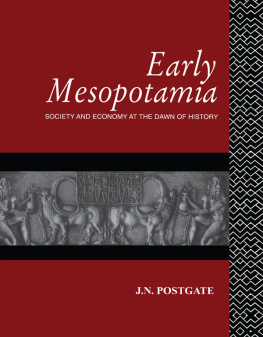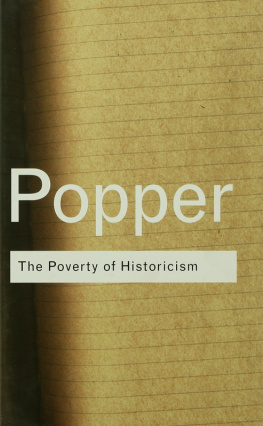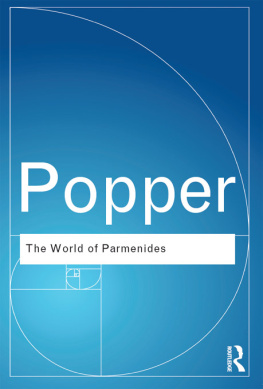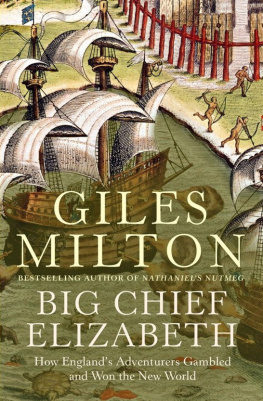PUBLICATION OF THIS BOOK HAS BEEN AIDED BY A GRANT FROM THE BEVINGTON FUND.
NICHOLAS POPPER is assistant professor in the Department of History at the College of William and Mary.
The University of Chicago Press, Chicago 60637
The University of Chicago Press, Ltd., London
2012 by The University of Chicago
All rights reserved. Published 2012.
Printed in the United States of America
21 20 19 18 17 16 15 14 13 12 1 2 3 4 5
ISBN-13: 978-0-226-67500-8 (cloth)
ISBN-13: 978-0-226-67502-2 (e-book)
ISBN-10: 0-226-67500-9 (cloth)
ISBN-10: 0-226-67502-5 (e-book)
Library of Congress Cataloging-in-Publication Data
Popper, Nicholas Seth, 1977
Walter Raleghs History of the world and the historical culture of the late Renaissance / Nicholas Popper.
pages. cm.
Includes bibliographical references and index.
ISBN 978-0-226-67500-8 (hardcover] : alkaline paper) ISBN 0-226-67500-9 (hardcover : alkaline paper) ISBN 978-0-226-67502-2 (e-book) (print) ISBN 0-226-67502-5 (e-book) (print) 1. Raleigh, Walter, Sir, 1552?1618. History of the world. 2. Historiography. I. Title.
D57.R184P67 2012
907.2dc23
2012001096

This paper meets the requirements of ANSI/NISO Z39.48-1992 (Permanence of Paper).
AC KNOWLEDGMENTS
I have undertaken this project at four locations, and at each, beginning at Princeton, I have been privileged to join communities of brilliant scholars. I have no doubt (indeed, I hope) that many scholars feel that they have been blessed to find the very best mentor on the planet; I have had the good fortune to be right in this sentiment. For many years, Anthony Grafton has devoted to me his substantial energy and incalculable erudition, an honor that Im not sure how I deserve. His interventions during the shaping of this book have come at perfectly chosen moments, while his kindness has been unrelenting.
Peter Lake has liberally offered his time and expertise, exhibiting an innate sense of when to grant me independence and when to provide more forceful direction. It has been a privilege to observe his scholarly rigor and creativity. The late Mike Mahoney taught me with great intelligence and patience, and I am thankful to have received his advice. I am grateful to Nancy Siraisi for the meticulous attention and care that she gave my manuscript; her criticisms and suggestions have been instrumental at several stages during its development.
All scholars should have a foundation for their experience as rigorous as Princetons Program Seminar in the History of Science, and I thank everyone in the program for their advice and criticism. It has been a source of enduring happiness for me that my time at Princeton coincided with that of James Byrne, who I deeply admire as a man and as a scholar. Bill Bulmans openness and enthusiasm have been an irreplaceable source of comfort and help. For years, Elizabeth McCahill has been a giving friend, providing exceptional encouragement and advice. Alexander Bicks levity and intellectual appetite have reinvigorated me at down moments for years. I thank Will Slauter for his incomparable ability to bring clarity to and offer distraction from this experience. I count myself lucky to have been introduced to Daniela Bleichmar, Sara Brooks, Angela Gleason, Brendan Kane, Rupa Mishra, Tania Munz, Jane Murphy, Cat Nisbett, Renee Raphael, Jeff Schwegman, Dan Schwartz, Alastair Sponsel, Jeris Stueland, Antoinette Sutto, and Matt Wisnioski.
In London, Lisa Jardine generously brought me into the Centre for Editing Lives and Letters at Queen Mary, University of London. Her kindness was amplified by Robyn Adams, Jan Broadway, Warren Boutcher, Rosanna Cox, Harriet Knight, and Alison Wiggins, whose advice and good humor made me want never to leave. Brent Sirota and James Vaughn, along with Andrea Coleman, Mark Forsyth, Phil Roe, and Martin Svedman, provided indispensable debate, inspiration, and distraction during that most productive time.
At Caltech, Mordechai Feingold sponsored me as the Mellon Postdoctoral in the Humanities, enabling me to discover the amazing vitality of early modern studies in Southern California. During my stay there, he, John Brewer, Matthew Hunter, Noel Swerdlow, and, most especially, Gideon Manning were wonderful colleagues whose insights pushed the project along at a moment when my own sense of it was stagnating. Susan Daviss generosity enabled an incredibly fruitful year. Nicholas Dew, Juan Gomez, and Craig Martin were no less vital to my time there; I can only hope we will all have fellowships at the Huntington at the same time again.
The History Department at the College of William and Mary has been an incredibly enjoyable and vibrant place to work; I cannot imagine a more productive and congenial environment. I am grateful to all my colleagues, though it would be ungracious not to single out Chandos Brown, Fred Corney, Cindy Hahamovitch, LuAnn Homza, Kathy Levitan, Paul Mapp, Leisa Meyer, Brett Rushforth, and Ron Schechter for their attention and guidance. Jonathan Eacott, Amanda Herbert, Daniel Livesay, Elena Schneider, and Molly Warsh at the Omohundro Institute of Early American History and Culture have also created an immeasurably stimulating academic community during my time in Williamsburg.
I have also been the recipient of much encouragementoften for reasons totally opaque to mefrom many senior scholars from early in my academic career. As an undergraduate at Haverford College, Lisa Jane Graham and Susan Stuard devoted encouragement and attention to me that I can never repay. Ann Blair, Tom Cogswell, Michael Gordin, Robert Goulding, Deborah Harkness, Randolph Head, Adrian Johns, William Chester Jordan, Paulina Kewes, Peter Mancall, Margaret Meserve, Mark Nicholls, Joad Raymond, David Sedley, Simon Shaffer, William Sherman, Nigel Smith, Malcolm Smuts, and Jacob Soll have been unaccountably supportive. Most notably, Lauren Kassell has devoted a measure of hospitality, kindness, and consideration to me that I can only hope to one day return, and I thank her in particular for her detailed comments on the final draft of the book.
This project could not have been completed without generous support from a wide range of institutions. Funding has been supplied by the College of William and Mary Faculty Summer Research Grant Program, the Mrs. Giles M. Whiting Foundation, the Andrew Mellon Foundation, and the North Caroliniana Society. I particularly thank the staffs at the Swem Library, the College of William and Mary; Firestone Library, Princeton University; the British Library; the Cambridge University Library; the Bodleian Library; the Henry E. Huntington Library; the Folger Library; the Walter Ralegh Collection at the University of North Carolina; the Small Special Collections Library, the University of Virginia; the Houghton Library, Harvard University; the Beinecke Library, Yale University; and the Public Record Office in Kew for their assistance.
Doug Mitchell, Tim McGovern, Sandy Hazel, and Joseph Brown have made the terrifying process of pushing this curiosity through to print feel almost natural. I am deeply grateful to them for their patience and guidance, and I am extremely appreciative of the efforts of the two anonymous reviewers, who contributed to shaping the final product as much as anybody.

 This paper meets the requirements of ANSI/NISO Z39.48-1992 (Permanence of Paper).
This paper meets the requirements of ANSI/NISO Z39.48-1992 (Permanence of Paper).
